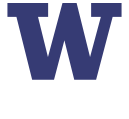Anyone walking around Conibear Shellhouse in the days and weeks since the end of the recently completed spring quarter might be a bit confused, both by the amount of activity and by the oarsmen wearing various college logos on their chests going about their business.
Never fear. This summer, Conibear is serving as the site of USRowing’s Men’s Under 23 National Team Selection Camp, with the UW’s Michael Callahan serving as coach.
Rowers and coxswains from 12 different colleges have convened in Seattle, hoping to earn a spot in one of several United States boats that will compete in Europe later this summer. The camp will serve as the proving grounds for the men’s eight and straight four, which Callahan has been given the responsibility of selecting. There will also be trials held for the American coxed four, pair, double and single.
Callahan is impressed with the new level of commitment that USRowing has made to the U-23 level – something he thinks will pay off for the senior-level crews later on.
“I talked Mike Teti, who is the Olympic coach and told him, ‘if you want the best guys, we have to make a program that attracts them,'” Callahan explained.
This summer, the crews selected to represent the U.S. will head to Europe in early July. Well before the Under 23 World Championships, the rowers will compete at the World Rowing Cup III in Lucerne, Switzerland, competing against senior-level rowers from around the world.
From there, they’ll train in Italy before moving on to the Under-23 Worlds, July 25-29 in Poznan. The time and money spent for those several weeks of competition and training mark a new level of commitment for the U.S. men’s program and that has served to attract nearly all of the top under-23 men in the nation to Seattle.
“Otherwise, everyone would have gone to Henley,” Callahan says. “Going to Lucerne is one of the hooks, along with spending three weeks in Europe. We have all of the best Americans here. These guys need to be in the boats in Tokyo for the 2020 Olympics. This is a big push. We’re going to try and get these guys into the senior team in the next year or two.”
For Callahan, who is also an avid Seattle rowing historian, it hearkens back to post-World War II era when elite rowers from around the country convened at the Lake Washington Rowing Club, where crews featuring Huskies and non-Huskies alike were put together to represent the United States at the Olympic Games and elsewhere.
“It’s like Stan Pocock, back in the 60s,” he explains, noting that in those days, the U.S. was trying to catch up with the Soviet bloc countries, which for a variety of reasons had advanced their level. “Those guys had a lot of success and won a lot of medals.
“United States rowing is really important; we want to have success in the Olympics ” Callahan continues. “This is a big commitment from the University of Washington and our staff.”







